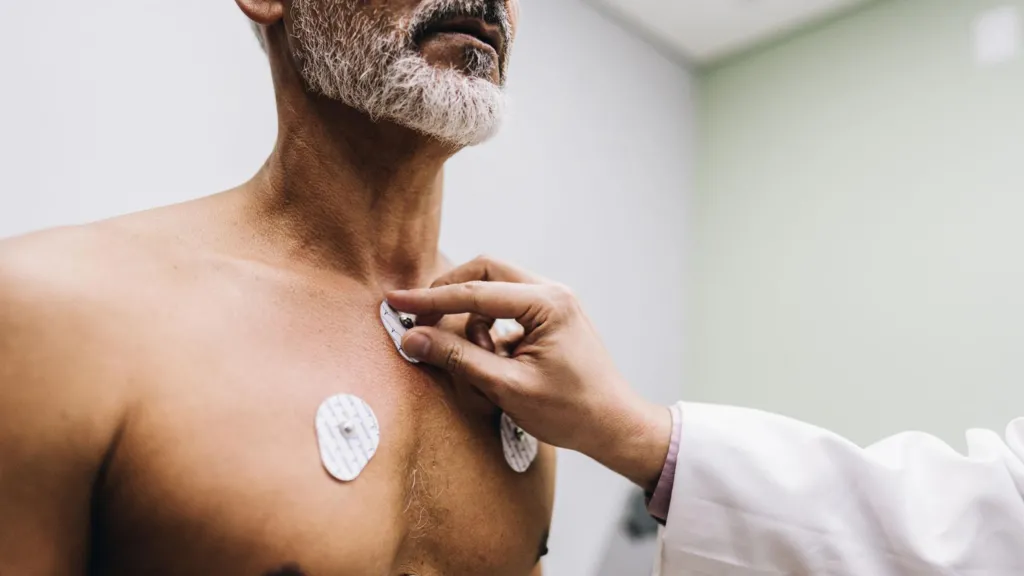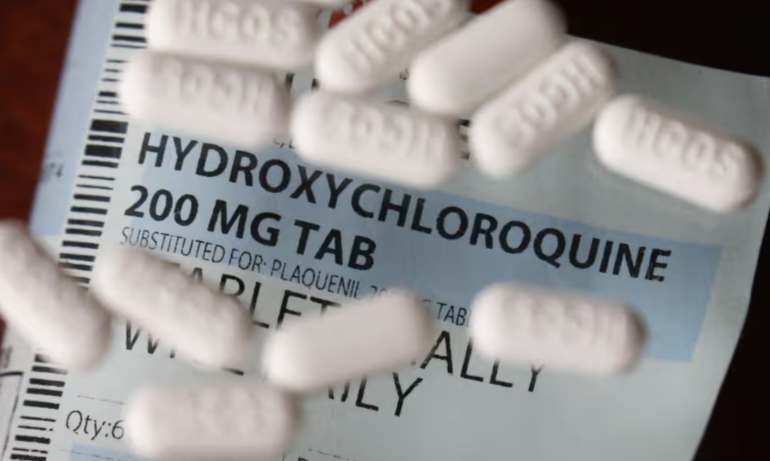A prominent study that promoted hydroxychloroquine as a treatment for COVID-19 has been officially retracted by the International Journal of Antimicrobial Agents.
The decision, announced by Dutch publishing company Elsevier, has reignited debate over the role of flawed research in shaping global health policy during the early stages of the pandemic.
The retraction notice, issued on Tuesday, cited “concerns regarding the article’s adherence to Elsevier’s publishing ethics policies and the appropriate conduct of research involving human participants.” The investigation was carried out by Elsevier’s research integrity and publishing ethics team in collaboration with the International Society of Antimicrobial Chemotherapy, which co-owns the journal.
The retraction followed an in-depth review of the paper, which had been published in March 2020. The study, which involved 36 COVID-19 patients, concluded that hydroxychloroquine — particularly when combined with the antibiotic azithromycin — was effective against the virus. This sparked a global rush to stockpile the drug, especially after then-US President Donald Trump touted it as a potential “miracle cure” for COVID-19.
However, multiple issues were identified with the study’s methodology and ethics, leading to its retraction. Key issues included:
- Lack of Ethical Approval: The journal could not confirm that ethical approval was obtained for the participation of patients in the study.
- Inadequate Patient Consent: It was unclear whether participants had provided informed consent to receive azithromycin, which was not considered a standard COVID-19 treatment at the time.
- Methodological Flaws: The journal could not verify that the study maintained “equipoise” — a condition where researchers have genuine uncertainty about which treatment is more effective for participants.
- Data Manipulation: Critics pointed out that six patients with negative outcomes were excluded from the final analysis, which may have altered the study’s conclusions.
In addition to the journal’s findings, three of the 18 study authors — Johan Courjon, Valérie Giordanengo, and Stéphane Honoré — requested that their names be removed from the paper, citing “concerns regarding the presentation and interpretation of results.”
Despite the decision to retract the study, several of its co-authors have disputed the retraction, arguing that the grounds for withdrawal are not valid.
The retracted study became one of the most influential and controversial pieces of COVID-19 research. It was the most widely cited study on COVID-19 to be retracted and the second-most-cited retracted paper overall, according to Nature.
The paper’s findings played a major role in the early pandemic response. It prompted health authorities in the US and several other countries to stockpile hydroxychloroquine, despite limited supporting evidence. The US Food and Drug Administration (FDA) even issued an emergency use authorization for the drug in March 2020, though it later rescinded it after follow-up studies failed to confirm the drug’s efficacy.
The French Society of Pharmacology and Therapeutics strongly criticized the study, calling it “a clear example of scientific misconduct.” In a statement, the society alleged that the study “falsely presented hydroxychloroquine as effective” and accused the authors of data manipulation and biased interpretation.
“This controversial study was the cornerstone of a global scandal,” the statement continued. “The promotion of its results led to the overprescription of hydroxychloroquine to millions of patients, resulting in unnecessary risk-taking for millions of people and potentially thousands of avoidable deaths.”
One of the most prominent figures linked to the study was Didier Raoult, a French virologist and former head of the Institut Hospitalo-Universitaire (IHU) Méditerranée Infection in Marseille, France. Raoult had been a vocal advocate for hydroxychloroquine as a COVID-19 treatment.
His advocacy sparked significant controversy, with other scientists accusing him of promoting false information. Raoult faced criticism for publishing other questionable research on COVID-19 and for supporting unconventional views on scientific issues such as evolution and climate change.
Raoult’s stance on hydroxychloroquine had a profound impact, not just in France but globally. His advocacy coincided with public endorsements from political figures, including President Trump, who claimed to be taking the drug prophylactically.
The decision to retract the study was met with mixed reactions from the scientific community. Some experts praised the move as an overdue correction of the scientific record.
“You don’t get closer to the truth by politicizing science,” said Ivan Oransky, co-founder of Retraction Watch, a website that tracks scientific retractions.
Others noted that the study had already done significant damage. Prescriptions for hydroxychloroquine increased 80-fold between March 2019 and March 2020, according to the US Centers for Disease Control and Prevention (CDC). The drug, which is approved for the treatment of malaria, lupus, and rheumatoid arthritis, was suddenly in short supply for patients who relied on it for non-COVID conditions.
In the wake of the retraction, the French Society of Pharmacology and Therapeutics emphasized the need for stricter ethical standards in scientific research and the dangers of politicizing public health issues.
The retraction of the hydroxychloroquine study serves as a cautionary tale about the dangers of rushing scientific research during a crisis. Early in the COVID-19 pandemic, there was intense pressure to find treatments, and the speed of research sometimes outpaced the rigor of peer review.
The retraction also underscores the importance of transparency in science. Ethical breaches, like failing to obtain informed consent from patients or excluding data that could affect outcomes, can have real-world consequences.
“This is a case study in how misinformation can spread when science becomes politicized,” said Oransky.
He emphasized that while mistakes are inevitable during a fast-moving pandemic, scientists and public health officials must be transparent about errors to avoid further erosion of public trust.
The Guardian and USA Today contributed to this report.









